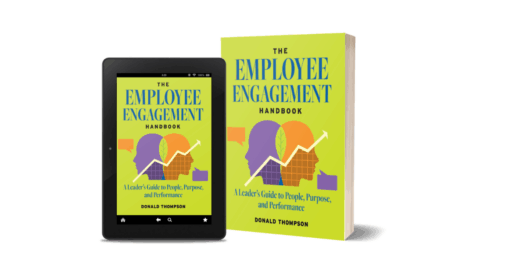Professionals who lead diversity, equity, and inclusion (DEI) sign up for an often lonely role. These change-makers are the nucleus of organizational transformation. Because the stakes are high, even the most passionate DEI leader can feel unwanted pressure, emotional burnout, and loss of confidence due to slow results.
Today’s DEI leaders require a new skill set and many supportive partners. As you work toward change, here are a few ideas and strategies that will help you stay mentally strong and healthy. The DEI journey isn’t easy, and no matter how long it takes, we want you along for the long haul. With that encouragement in mind, here are eight tools to help you become a healthy DEI leader.
1) Reimagine Work
I recently asked a great CEO what was misunderstood about his company. His response: “The work is in the back room, not the front room.”
What he meant is that success looks easy, but it is not. It takes hard work. The mission-critical work exists in the back room, along with deadlines, strategy sessions, client meetings, reorganizing policies, and the battle of the human will. Backroom work requires collaboration and trust within a team. Think of the difference as that between the U.S. President and their advisers working in the “situation room” versus the camera-ready “Oval Office.”
Look past the bright lights and the fancy practitioner photos on social media, and get focused on the backroom work.
2) Teamwork Makes the Dream Work
There is safety in counsel and success in a team. You’ll need to nurture partnerships and create allies in human resources (HR), marketing, finance, and the c-suite to gain buy-in for your DEI objectives. Being successful in DEI work means integrating all departments across the organization so that everyone is working together toward improving workplace culture and the bottom line.
3) Stay Away from Pessimistic DEI Practitioners
How can you transform your organization if you have a pessimistic disposition? It’s impossible. Many DEI practitioners have done this work for many years and have become discouraged. Stay away from other DEI practitioners who don’t believe positive change is possible, especially those who make negative comments about other people.
Also, take care that your own negative experiences don’t discourage you. If that begins to happen, spend time with optimists who will fuel your fire for transformative work. After I discovered my passion for DEI, I was introduced to Leslie Ridgley, now the director of diversity, equity, and inclusion for the software company Toast. She poured many lessons into me as an aspiring DEI leader. We have also become great friends and often share stories of encouragement with one another as a way to fuel the fire for this noble profession.
4) Refrain from Aggressive Rhetoric
Truth is sometimes hard to hear, and a harsh delivery makes it even harder. Aggressive rhetoric blocks the pathway to understanding — a path that increases the chances of every person learning in the cultural moment. No one learns well when they’re backed into a corner.
As a DEI leader, be aware of your language and delivery. The impact might be far different from your original intention.
For example, Kimberly Jones gives a masterful lesson on systemic racism in the “Monopoly Slavery Analogy.” Her points are crystalized and absolute, and her video acquired millions of viewers. I recently spoke with a human resources colleague who wanted to show the video to her regional team of HR professionals. However, she could not play the video in the workplace because it contains expletives. This window of opportunity closed because of Jones’s aggressive delivery.
As a DEI leader, it’s OK to be honest, agitated, and emotional, but you must refrain from being verbally aggressive in the workplace. Take time to express your thoughts with strength and professionalism.
5) Listen Intently for Good Feedback
DEI leaders need good and truthful feedback. Understand that feedback is a gift, and you will learn a great deal by asking the right questions. One effective way to ensure you are gathering ample, honest feedback is by conducting organizational climate surveys. The insights you receive will help reveal the next critical steps to achieving your business goal and building a robust culture of belonging. As always, if you don’t know something, ask. We are all senior beginners.
6) Know Your Business
A close DEI friend once told me that another name for diversity, equity, and inclusion is “change management.” That concept will serve you well. Change management is about understanding the business model to make necessary internal changes via programing, policy, systems, and strategy, so you can win in the marketplace. Before discussing a DEI strategy, you need to know your organization well, along with the industry, challenges, trends, and opportunities. Building your expertise will allow you to establish strategies specific to your business model and organization-wide goals for the future, making you more effective.
7) Partner with a Trusted Firm
As the DEI champion entrusted with the authority to help implement change, you need the right resources. You might not have all the answers to the challenges your company is facing, but you can partner with a reputable firm that will put solutions at your fingertips. Signing up to be a DEI leader requires endurance, and the right tools can speed your pace. That is the purpose behind our monthly membership service, DEI Navigator. Member-partners gain access to curated content, certified experts, and timely guidance. You gain a cohort of like-minded professionals in your field, and you get the support and resources you need to make the best impact in your organization.
8) Always Remember Your Why
To remain a healthy DEI leader, you must always remember your personal why. This work can be challenging and demanding, and big expectations may rest on your shoulders. Keep coming back to the fact that DEI will help your business win in the marketplace, and remember that your work is making a tangible difference in the present-day lives and future opportunities for other people.
As you make progress toward your organization’s DEI goals, your team members will enjoy being in an inclusive workplace, where they are happier, healthier, and can be more creative. Most importantly, you and your team will be making a difference in the lives of others.
Brentley Wright is a lifelong learner and leader focused on accomplishing transformational workplace change and earned his Diversity and Inclusion Certificate from Cornell University. Connect with him on Linkedin.




